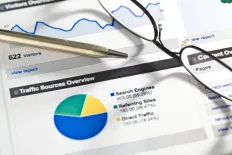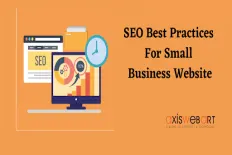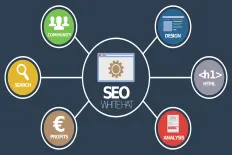The following topics will be discussed in this post.
- SEO Tracking Is Valuable To Your Business
- How to measure and track your SEO success?
- How to use Google Analytics and Google Search Console
- Do You Need SEO?
- How to Achieve Better Ranking in the SERPs (Search Engine Results Pages)
- 6 Ways to Improve your SEO ranking without breaking a sweat
- Create Quality Content
- Use appropriate keywords
- Optimize your page load speed
- Give value to your readers
- Link back to your social media accounts
If you're an online business owner or are planning to become one, SEO tracking will be essential in helping you improve your website and increase your bottom line. But what exactly is SEO tracking?
And why should you use it? If you don't use this strategy, then there's no point in doing any other form of marketing! Therefore, hiring an excellent company to handle your website design and content management system is essential.
Moreover, your search engine optimization can help you make better decisions about your content and how to maximize its impact on your website traffic and sales.
SEO Tracking Is Valuable To Your Business

But only if you track it properly. SEO tracking is one of those buzzwords that seems to throw business owners into a panic. They're not sure what to follow or how which can lead to incorrect actions on their part and sometimes cause them to stop doing it altogether.
But when done correctly, SEO tracking can give you insights into how your website performs over time so that you can make informed decisions about future marketing strategies. Here's everything you need to know about SEO tracking for your business.
1. Analyze your organic traffic over time - Google Analytics is a free tool that tracks your website's performance, including where and how people find you. It can help you track keywords they use to see you, what content they're consuming, and how long they stay on your site.
2. Follow competitors - Everyone's vying for a piece of your traffic, and if you want to stay on top, you need to keep tabs on how your competitors are doing it. Use Google Search Console to see which keywords they're ranking for and check their backlinks so you can evaluate where they're getting links.
3. Assess SEO trends - Use Google Trends to identify popular keywords and topics people are searching for and use it to compare your rankings with those of your competitors.
Knowing what people want can help you make decisions about what content to create or how to optimize it for search engines.
And using tools like Alexa can help you understand where people come from when they visit your site and where they go after leaving, so you can improve that aspect of your site too.
4. Measure link quality - When other sites link to yours, it's called a backlink. But not all links are created equal; some are more valuable than others.
Check your site's Domain Authority to see where you rank and make sure that you have plenty of high-quality links pointing to your site, which will help search engines better understand your site's importance.
How to measure and track your SEO success?

Track, measure, and adjust your SEO company efforts for better results. However, to have an effective strategy that improves your position in search results, you need a clear understanding of what's working and what isn't, which is where analytics come into play.
To measure your SEO success, you need to focus on three key areas: traffic, conversions, and lead generation. Several tools are available to track your website's analytics, but one of our favorites is Google Analytics.
Google Analytics gives you an overview of your web traffic, including valuable information such as which keywords people used to find your site, where they came from, and what they did when they got there.
It can even tell you how much time they spend on certain pages.
To measure your SEO efforts' effectiveness, you'll also need to track where you're getting leads. For example, if you contact leads on Facebook, use a tool like Tagtog to create custom audiences and retarget visitors who visit your website.
If you don't know where your leads are coming from, it can be hard to determine whether your SEO strategy is successful.
How to use Google Analytics and Google Search Console
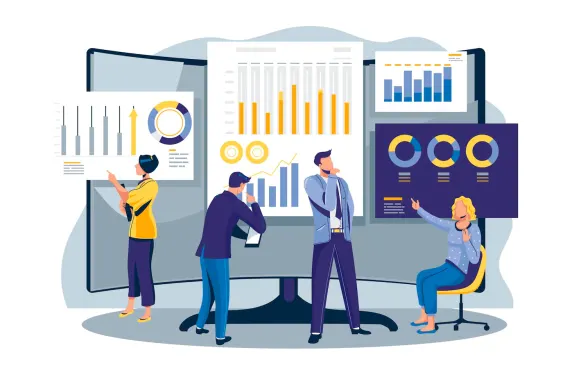
If you're going to be ranking on Google, you must keep tabs on your rankings. That's where search engine optimization (SEO) tracking comes in. The best way is through free analytics programs like Google Analytics and Google Search Console.
The former can help determine how many people visit your site and engage with it, while Search Console provides insight into how search engines like Google index your site and which keywords send traffic your way.
You'll need to set up an account with both Google Analytics and Google Search Console.
If you already have a website or are launching one soon, it should be relatively straightforward; however, if you're in charge of multiple accounts, it might make sense to make a master account instead.
After you've signed up for both platforms, it's time to learn how to use them. Follow these step-by-step instructions and check out some of these additional resources. After following those guides, you should have a pretty good understanding of SEO tracking and how it can benefit your business.
However, if you want to dig deeper into Google Analytics and Google Search Console, here are some more helpful resources that may be useful for furthering your knowledge about SEO analytics.
Do You Need SEO?
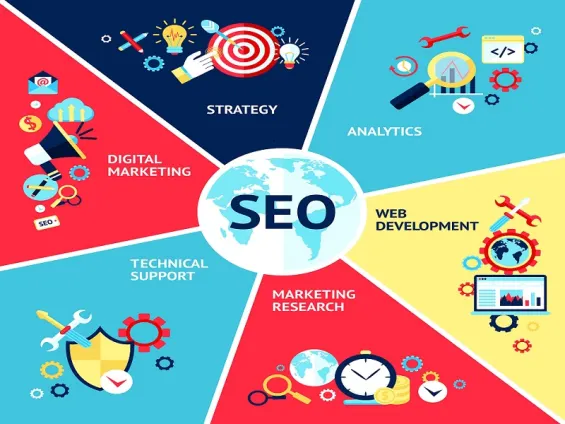
If you don't already know what SEO is, it stands for search engine optimization. If you're a small business owner and haven't considered how to optimize your business for search engines, it's time to do so now.
Search engines are far and away one of the most important sources of new customers for small businesses.
What is SEO and How Does it Work? Now that you understand why SEO matters, let's talk about it. SEO is a range of techniques and best practices website owners use to attract search engines to their sites.
Think of marketing your website to search engines instead of directly targeting consumers. That means your site can be listed among search results on a Google page for related content if someone searches Google for online flower delivery or another specific keyword.
Do you need SEO for your small business? So, do you need an SEO agency for your small business? The short answer is yes, so long as you're trying to attract new customers. But then, optimizing your site with SEO is necessary if you want more web traffic and customers.
However, remember that once you optimize your site and start getting search engine traffic, what happens next depends on how well you convert those visitors into paying customers.
Read more How to Influence Ranking Factors with Local SEO?
How to Achieve Better Ranking in the SERPs (Search Engine Results Pages)

Proper tracking is essential to understanding your site's performance concerning your goals. Following a few basic steps, you can track which keywords send traffic to your site and how that traffic converts.
Today we'll look at SEO tracking and why it's so essential for SEO success.SEO tracking is essential to any SEO campaign, as it lets you see how your website performs with your goals.
You cannot know whether your SEO efforts are paying off without proper monitoring.
So, what does SEO tracking entail? The first step is to identify which keywords you want to track. There are several ways to do so, but we'll focus on using Google Analytics.
In Google Analytics, go into Traffic Sources and then Search Engine Optimization under Acquisition on the left-hand side of your screen.
6 Ways to Improve your SEO ranking without breaking a sweat
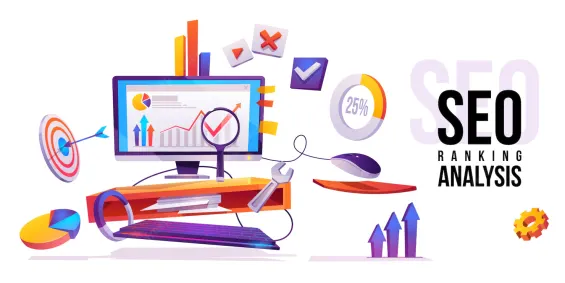
Search engine optimization (SEO) is essential for any business—but it's especially vital for small businesses that can't spend thousands of dollars on paid advertisements to get their name out there.
Luckily, as with most things in life, you can get a lot done without spending much money. With that in mind, here are six ways to improve your SEO ranking without breaking a sweat.
1. Start with keyword research. Before doing anything else, research keywords and find out what people are searching for online. Use tools like Google Keyword Planner or Ubersuggest to discover popular search terms related to your industry and target those keywords when writing content.
2. Optimize titles and descriptions for search engines. When optimizing titles and descriptions, keep them short and sweet while also including relevant keywords, so they show up in search results more often.
3. Write great meta descriptions. Meta descriptions allow you to include a few sentences about your website in search results, which gives users an idea of what they'll find if they click through. Write meta descriptions that are concise yet compelling so users will want to click through and visit your site.
4. Create quality backlinks using link-building strategies such as guest blogging and press releases. Backlinks from reputable websites help increase your page rank on major search engines such as Google, Yahoo!, and Bing.
5. Make sure your content is unique. Copying and pasting large chunks of text from other sites could hurt your SEO ranking because search engines penalize duplicate content by lowering its page rank.
6. Make sure all your images have alt tags. Alt tags allow you to add descriptive text to images so visitors who don't see pictures can still understand what each image contains.
Create Quality Content

You can't expect to rank in search engines without quality content on your website. When people go online to solve a problem, your goal is to be one of their top solutions.
That started with good quality content and continued effort.If you want to learn more about SEO tracking or are interested in getting your business's website ranked highly in search engines!
Use appropriate keywords
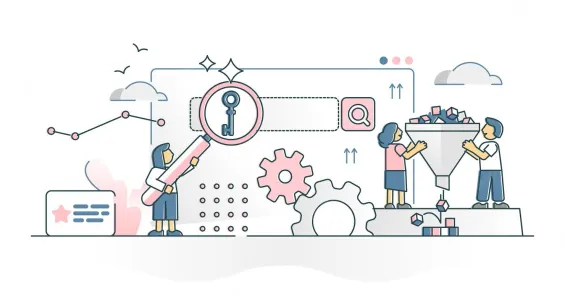
Keywords are words or phrases used to help search engines identify what your content is. Every post should contain specific keywords that relate to your business. These keywords could be services you offer, products you sell, etc.
Search engines like Google use these keywords to match users with relevant content for their search queries. It can lead directly to higher rankings for your site in search results and drive a lot of traffic.
If you don't use keywords appropriately in your content, you could attract very little to no traffic from search engines. Remember that every content on your site should also include a specific keyword or phrase that relates to what it's about.
It will ensure that search engines know exactly what each post is about and how relevant it is to any given query. The more relevant your content is to a particular question, the higher you can expect it to rank for that query and thus drive more traffic.
Read more What are the top reasons to hire an SEO Company?
Optimize your page load speed
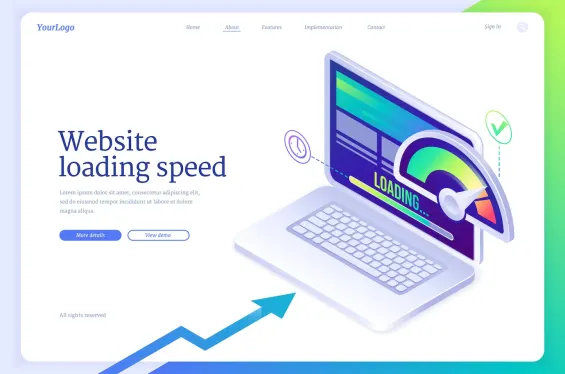
If you run a business website, then it is probably one of your most valuable assets. After all, without it, your business would be virtually nonexistent. Google has said that page load speed can impact click-through rates and how much time users spend on a site.
If you're looking to gain more customers in your niche or increase traffic on your existing site, then you need to consider how much time each visitor spends looking at your pages – every second counts!
One of many factors affecting your site's speed is how long it takes to load, as most visitors will abandon a page that isn't loaded within 3 seconds. However, more than half of visitors expect a website to load in two seconds or less.
Therefore, you must optimize your page load speed if your website remains competitive and retains customers. Fortunately, there are multiple ways you can do so.
Give value to your readers

It's no secret that content marketing is a great way to drive traffic and build an audience, but as you're creating your posts, remember that you have a chance to give value first.
Always keep that in mind while writing your posts, so they're not just focused on driving traffic but delivering real value to your readers. If you're not giving value, your readers won't stick around to see what else you have to offer.
Plus, if they don't see real value in your content, they probably won't share it with their friends or colleagues. SEO tracking is one of those things that will allow you to provide more value to your audience while simultaneously driving more traffic.
Link back to your social media accounts

Don't leave your social media accounts lying dormant if you're trying to connect with new customers or land a promotion. Instead, make it easy for people to follow you on social media platforms and comment or like your posts.
For example, add links to all your social media accounts in your email signature, so when contacts add you on LinkedIn, they can follow you on Twitter and Facebook at once.
Conclusion
In your business, SEO tracking is essential. To be competitive in today's marketplace, you need to know how your business stacks up against others regarding keyword ranking and traffic rates.
Understanding where your company stands concerning its competitors will help you make better marketing decisions in the future. In addition, with more data at your disposal, your ability to optimize for higher search rankings will improve significantly.
Read Next
The following articles are related to seo tracking: what it is & why you need it for your business.






